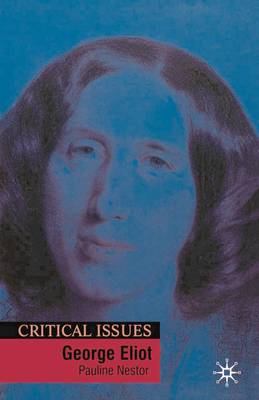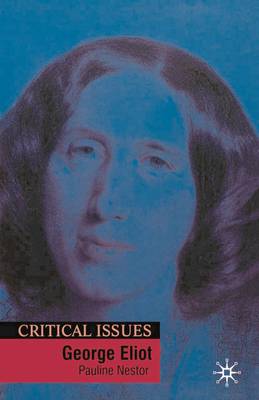
- Afhalen na 1 uur in een winkel met voorraad
- Gratis thuislevering in België vanaf € 30
- Ruim aanbod met 7 miljoen producten
- Afhalen na 1 uur in een winkel met voorraad
- Gratis thuislevering in België vanaf € 30
- Ruim aanbod met 7 miljoen producten
Zoeken
€ 115,95
+ 231 punten
Uitvoering
Omschrijving
George Eliot was one of the great thinkers of her time, a figure central to the main currents of thought and belief in the nineteenth century. Yet when this distinguished public intellectual turned to fiction writing at the age of thirty-six, she regarded it not as a lesser pursuit, but as the distillation of all of her knowledge and ideas. For Eliot, fiction enabled the consideration of life 'in its highest complexity', and had the capacity not merely to elicit, but actually to create, moral sentiment by surprising readers into the recognition of realities other than their own.
In this new study, Pauline Nestor offers a challenging reassessment of Eliot's contribution to the critical debates, both of her age and of her own era. In particular, she examines the author's literary expolration of ethics, especially in relation to the negotiation of difference. Nestor argues compellingly that, through a reading of their sophisticated drama of otherness, Eliot's novels can be seen as freshly relevant to contemporary theoretical debates in feminism, moral philosophy, post-colonial studies and psychoanalysis. Covering the writer's complete body of major fiction, this is an indispensable voume for anyone studying the work of one of the most important and influential novelists of the nineteenth century.Specificaties
Betrokkenen
- Auteur(s):
- Uitgeverij:
Inhoud
- Aantal bladzijden:
- 192
- Taal:
- Engels
- Reeks:
Eigenschappen
- Productcode (EAN):
- 9780333722008
- Verschijningsdatum:
- 30/05/2002
- Uitvoering:
- Hardcover
- Formaat:
- Genaaid
- Afmetingen:
- 230 mm x 147 mm
- Gewicht:
- 349 g

Alleen bij Standaard Boekhandel
+ 231 punten op je klantenkaart van Standaard Boekhandel
Beoordelingen
We publiceren alleen reviews die voldoen aan de voorwaarden voor reviews. Bekijk onze voorwaarden voor reviews.











